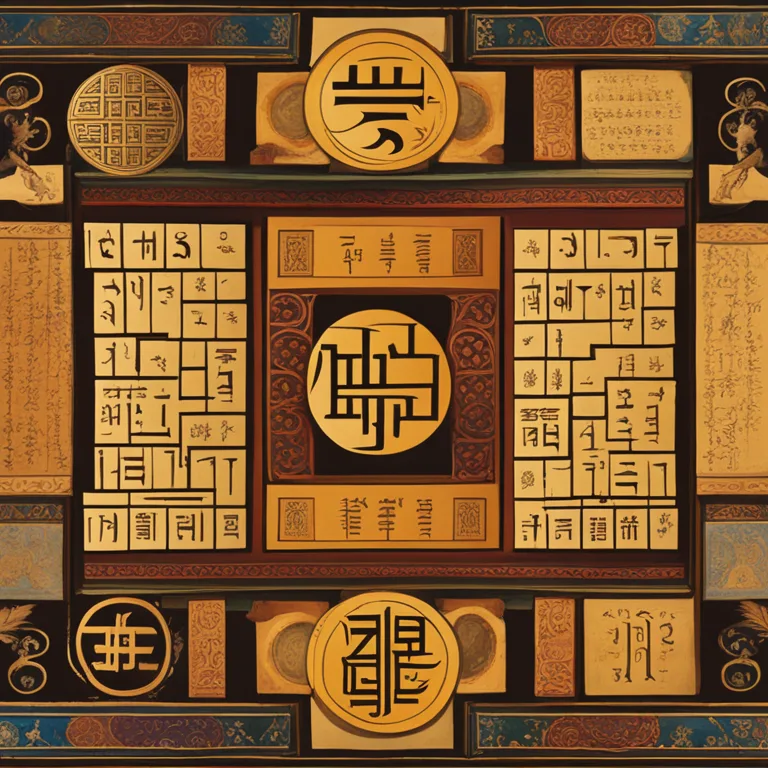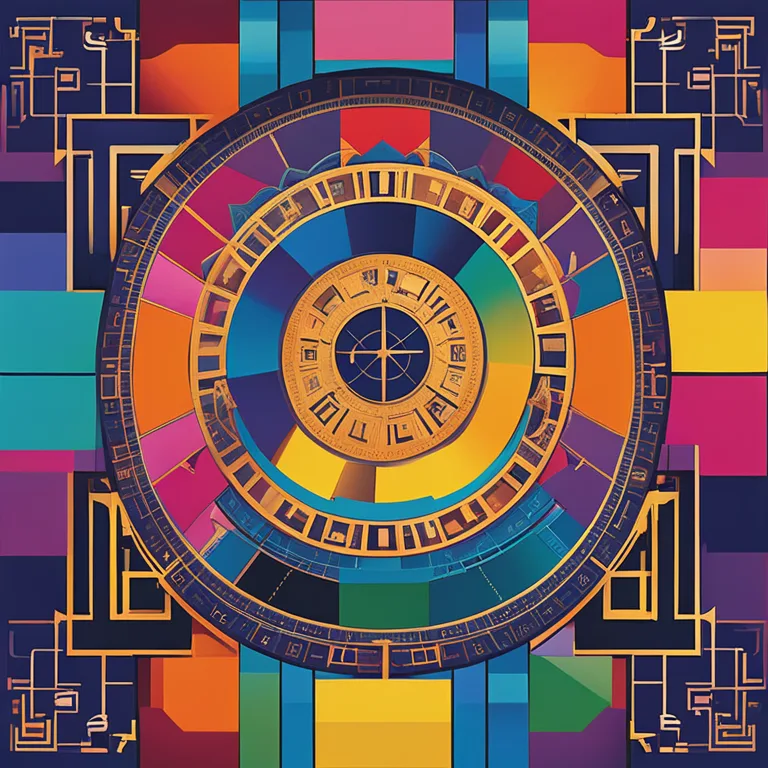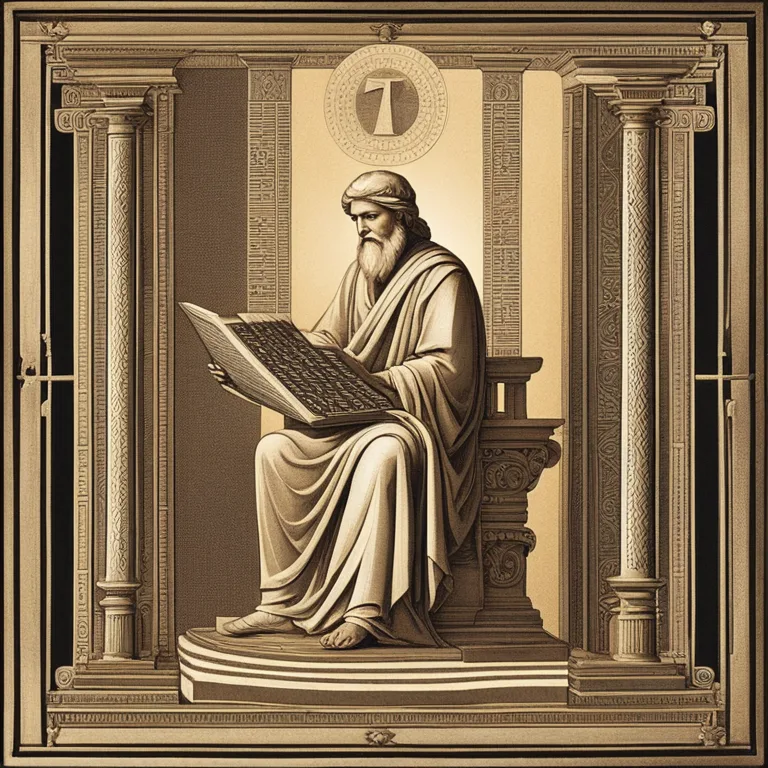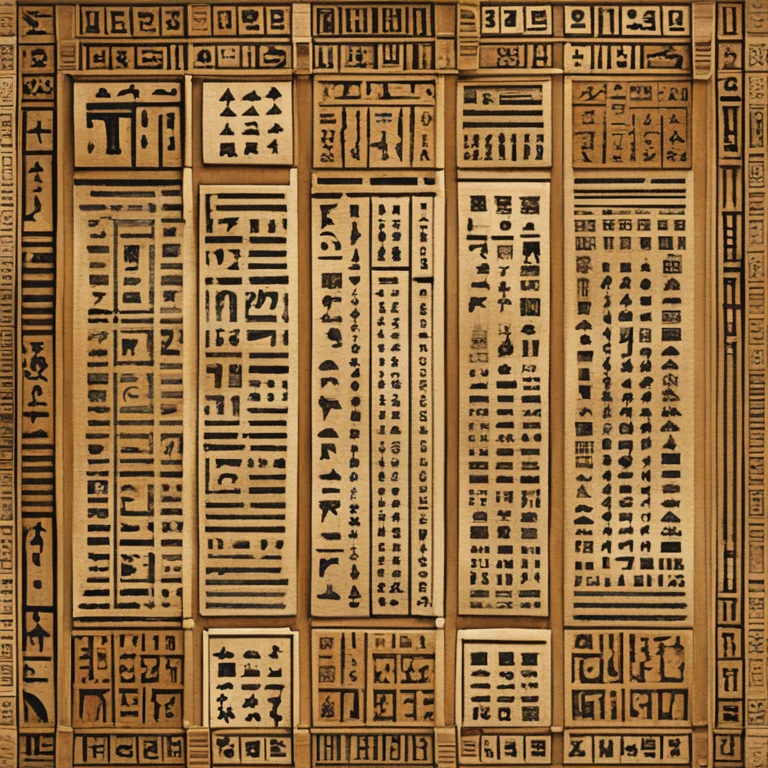
The Origins Of Numerology
Discover the historical roots of numerology, an ancient practice intertwining numbers with fate and personality.
article by Sofia Ferguson
Ancient Numerology Beginnings
The quest to understand the universe and individuals has long involved numbers, leading us to the origins of numerology. This ancient practice, which correlates numbers to events and personality traits, predates recorded history and is known to have been utilized by various civilizations. Egyptians, Phoenicians, and Chaldeans in Mesopotamia are among the earliest groups to explore numerical symbolism. However, it was not until much later that these mystical insights began to be organized into a system akin to the numerology we recognize today.

Pythagoras: The Father of Modern Numerology
Historically, numerology is most often associated with the Greek philosopher Pythagoras and his followers. Around the 6th century BCE, Pythagoras developed a system that imbued letters with numerical values and sought to divine meaning in the numerical relationships between these values. While not directly credited with creating numerology, his work laid the foundation for the modern alphanumeric systems where each letter is tied to a specific number, and combinations yield insights into one's life and destiny.

The Expansion of Numerological Thought
In the millennia that followed, numerology expanded alongside trade routes and cultural interactions. The practice became enriched with the philosophies and mystical traditions of the different societies that adopted it. For example, Kabbalistic teachings incorporated their own numerological system, with Jewish mystics analyzing the numerical values of Hebrew letters for deeper spiritual truths. Similarly, Chinese cultures have long revered certain numbers for their auspicious meanings, integrating numerology into their societal fabric.

Contemporary Numerology and Popularity
The contemporary era has seen a resurgence of interest in numerological practices. In the 20th century, figures like L. Dow Balliett and Dr. Julia Seton furthered the field by creating works that married Pythagorean principles with modern psychology. Through the New Age movement and continued popularization in media and literature, numerology has carved out a steadfast role in present-day spiritual explorations and self-help, gaining a notable audience in the 2020s.

Numerology in the Digital Age
As we moved into the 2020s and beyond, numerology has adapted to the digital age. Online platforms, software, and mobile apps have emerged, providing personalized numerological readings available at one's fingertips. This accessibility has allowed numerology to reach a broader demographic, ensuring that the teachings of numerology can evolve with each technological advance while remaining embedded in its ancient roots.
The Future of Numerological Studies
Looking ahead, the study and application of numerology are poised for continued evolution. With integrating artificial intelligence and data analytics, numerology can offer even more detailed and personal insights. As society grows increasingly interested in spirituality and self-understanding, numerology will likely maintain its allure, inviting people to explore the symbolic meaning behind numbers and their effect on human life.
Published: 12/21/2023
Modified: 12/21/2023
More predictions
Come back here soon to learn more about yourself and your future


Insights for Personal Year 2 in Numerology
Discover the resonances and potential of Personal Year 2 in numerology, guiding personal growth and relationships.


The Essence of Numerology's Spiritual Dimensions
Delve into numerology's spiritual meanings and discover how numbers shape your spiritual journey and destiny.


The Mystique of Name & Birth Numerology
Discover how your name and birthdate reveal your unique numerological profile and life path through the ancient practice of numerology.